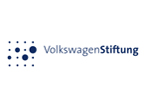Der digitale Wandel hat die Art und Weise, wie in den Wissenschaften kommuniziert wird, verändert. Digitale Technologien haben nicht nur zu einer Transformation des internen wissenschaftlichen Publikationswesens geführt, sondern auch gänzlich neue Formen der (informellen) Kommunikation sowie der Bewertung und Messung von wissenschaftlichem Handeln hervorgebracht.
Verändert hat sich auch die gesellschaftliche und wissenschaftspolitische Debatte: zunehmend wird erwartet, dass Wissenschaftler*innen und wissenschaftliche Organisationen nicht nur mit ihren Kolleg*innen bzw. Mitgliedern, sondern auch mit weiteren gesellschaftlichen Gruppen kommunizieren und sich aktiv in Debatten einbringen. Digitale Medien scheinen in diesem Kontext relevanter zu werden. Auch ein verstärkter Wettbewerb in der Forschung führt dazu, dass digitale Formen der Wissenschaftskommunikation an Bedeutung gewinnen.
Doch was bedeutet dieser Wandel für die wissenschaftliche Praxis des Kommunizierens? Wie verändern sich Formen der wissenschaftlichen Selbstdarstellung und Selbstbeschreibung durch die Etablierung und Nutzung digitaler Kommunikationsmedien in der Wissenschaft, und wie unterscheiden sich die verschiedenen Disziplinen in dieser Hinsicht? Welche neuen Akteure und Infrastrukturen entstehen, die Informationen über digitale Wissenschaftskommunikation sammeln und verbreiten?
In diesem Projekt untersuchen wir Diskurse, Treiber und Praktiken der digitalisierten Wissenschaftskommunikation. Dabei fokussieren wir insbesondere auf die Rolle neuer Metriken bei der Etablierung und Verbreitung neuer Kommunikationsformen sowie die organisationale und feldspezifische Verarbeitung und Nutzung dieser neuen Formate. Das von der Volkswagen-Stiftung geförderte Forschungsprojekt ist gekennzeichnet durch ein multi-methodisches Design, das diskursanalytische Untersuchungen mit Fallstudien und quantitativen Analysen verbindet.



